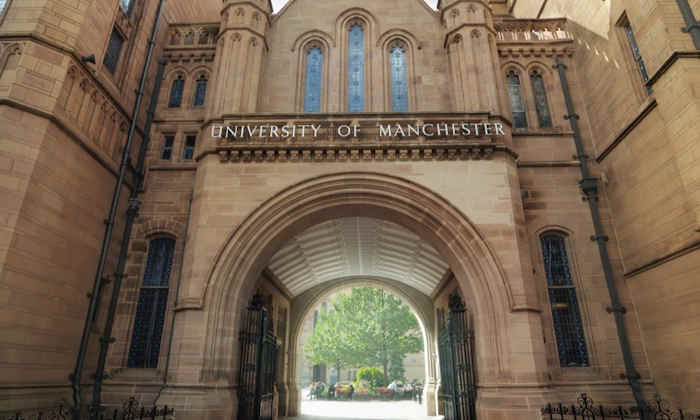Foundation Day 2020 marked by tribute to our University community
14 Oct 2020
The huge efforts of the University’s staff and students in responding to the global pandemic, and a celebration of the past year’s successes, are the themes for this year’s Foundation Day

Every October we celebrate Foundation Day to mark the creation of The University of Manchester in its current form. Traditionally a celebration is held in the historic Whitworth Hall but, due to the continuing impact of COVID-19, this cannot happen this year. Instead, the University has produced this short film to pay tribute to its staff, students and alumni for the work they have done, and are continuing to do, to help mitigate the impacts of the virus.
One of the contributors to the film is President and Vice-Chancellor, Professor Dame Nancy Rothwell. She said: “The past year has demonstrated the humanity, courage and pioneering spirit of the University and these values will be crucial as we look to the future.”
“It is sad that we are not to be able to meet in person this year, but I hope that in looking back at the year we are able to share a sense of pride in the remarkable achievements of our people.”
Chair of the Board of Governors, Edward Astle, reflects in the film on our collective spirit, reliance on evidence and international outlook and how we encourage our students to embrace these values which will lead to long-term benefit for society. He says: “I have enormous pride in the University and the way in which it has responded to COVID-19.”
Chancellor Lemn Sissay MBE adds: “As we start the new academic year, COVID-19 continues to challenge us. We understand the uncertainty that many people are feeling and the hard work that continues for our students and staff. I believe the spirit of our people will help us through.”
Reacting to COVID-19 has undoubtedly been a major focus for the University since March but there have also been many other achievements of which its people can be proud.
In the past academic year the institution has maintained its highest ever ranking at 27th in the QS World University Rankings and remained the most targeted university by the UK’s top 100 graduate employers. Manchester was also the UK’s top ranked university in the Times Higher Education Impact Rankings for work on the UN’s Sustainable Development Goals.
The University also launched its new strategic plan, Our future. The vision is for the University to be recognised globally for the excellence of its people, research, learning and innovation, as well as the benefits it brings to society and the environment.
Manchester’s researchers continue their work on some of the world’s most pressing problems. These include discovering a way to stop the spread of a devastating childhood cancer, revealing the highest-ever level of microplastics on the seafloor, and finding ways to tackle the UK’s regional inequality. They have also helped to investigate hints of life on Venus, discovered rare dinosaur embryos, and travelled to Buckingham Palace to collect the Queen’s Anniversary Prize for the outstanding research of our Manchester Institute for Biotechnology.
The Queen’s Anniversary Prize wasn’t our only award, there were also three new National Teaching Fellows, 11 Manchester scientists winning prestigious Royal Society of Chemistry awards, and three of our staff being elected as Fellows of the British Academy.
The University also announced Marcus Rashford will receive an honorary doctorate in recognition of his campaign against child poverty and sporting achievements. He will be our youngest ever recipient. Today we had planned to honour Dorothy Byrne, Professor Sir Alan Langlands, Martin Lewis, Dr Helen Pankhurst and Maggie Philbin with honorary doctorates. We will confer these awards as soon as it is possible to do so.
Further demonstrating our commitment to sustainability, we announced that we will end investments in fossil fuel reserve and extraction companies by 2022, and decarbonise all investments by 2038.
Our staff and students continue to play an important role in social, cultural and economic recovery. Creative Manchester is supporting the arts and culture industry in the north-west and beyond, while development continues at our cultural institutions such as Manchester Museum and the First Light Pavilion at Jodrell Bank, our UNESCO World Heritage Site.
In support of the economy, we announced that Alliance Manchester Business School will head up a £32m Productivity Institute, and our procurement process to find a development and investment partner to deliver a £1.5 billion new world-class innovation district, ID Manchester, is ongoing.
